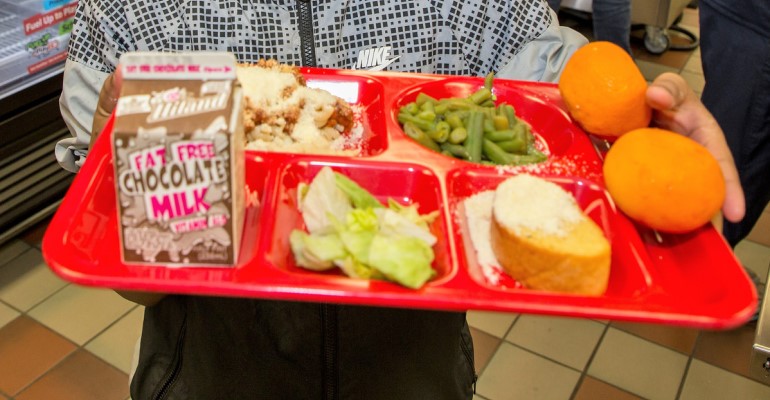House members introduce Emergency Food Security Bill amid growing coronavirus outbreak.

Earlier in the week, Secretary of Agriculture Sonny Perdue announced proactive flexibilities to allow meal service during school closures to minimize potential exposure to the coronavirus. Entire states including Ohio, Washington and Maryland extended a multiple-week spring break to all students and called into question how low-income children would be fed.
The U.S. Department of Agriculture ensured that during an unexpected school closure, schools can leverage their participation in one of USDA’s summer meal programs to provide meals at no cost to students. Under normal circumstances, those meals must be served in a group setting. However, in a public health emergency, the law allows USDA the authority to waive the group setting meal requirement, which is vital during a social distancing situation.
USDA intends to use all available program flexibilities and contingencies to serve its program participants across our 15 nutrition programs. “We have already begun to issue waivers to ease program operations and protect the health of participants. USDA is receiving requests for waivers on an ongoing basis,” USDA said. As of Thursday, USDA has been asked to waive congregate feeding requirements in Washington, California, Maryland, Alaska, Utah, Pennsylvania, Wyoming, Maine, and Kansas and USDA has granted those requests.
During questioning in a Senate appropriations agriculture subcommittee hearing on Thursday, Perdue said USDA will be granting all states yes for the waivers for any who seek them.
“President Trump has made the safety, security, and health of the American people his top priority. The whole of government approach and the unprecedented, preemptive actions the President has taken continues to keep the risk of Coronavirus to most Americans low,” said Perdue. “This is a time we all need to remain ever vigilant, pull together, put any kind of partisanship aside, and do what we need to do for the American people. At USDA, we are working to ensure children who are affected by school closures continue to get fed. We intend to use all available program flexibilities and contingencies to serve those affected by the outbreak.”
Emergency food security bill
In the House, a Democratic delegation of members also introduced the Ensuring Emergency Food Security Act, new legislation to combat the economic impacts of the coronavirus by:
Temporarily increasing Supplemental Nutrition Assistance Program (SNAP) benefits;
Blocking any funding from being used to implement Trump administration rules that would narrow eligibility for food assistance programs;
Suspending work requirement time limits for SNAP benefits; and,
Expanding the food distribution program on Indian reservations.
“The coronavirus outbreak is already having a significant effect on children and families, and our federal government needs to step up to help them immediately,” said Rep. Rosa DeLauro (D., Ct.). “Public officials are telling people to stock up on food for up to two weeks—but how exactly are our most vulnerable families supposed to do that? Too often, people who are living paycheck-to-paycheck are forgotten, and it is exactly at times like these that we must be thinking about them and doing everything we can to help them. That is why I am proud to introduce this emergency legislation with my House Democratic colleagues to ensure children and families a crucial measure of economic security.”
“I’m very concerned that the coronavirus outbreak could put a major strain on families who are already struggling to put food on the table,” said another co-sponsor of the bill Rep. Jim McGovern (D., Mass). “The majority of SNAP recipients who are able to work do, but they make so little that they still qualify for benefits. If they are being told to stay home for weeks at a time, this outbreak could seriously impact their access to food, leaving them hungry and with nowhere else to turn. In times of uncertainty and crisis, Congress needs to step up and guarantee that nobody in our community is left behind or left out. I’m proud to join Congresswoman DeLauro and our colleagues to introduce this urgent measure to prevent hunger from getting worse as our nation responds to the coronavirus.”
About the Author(s)
You May Also Like




.png?width=300&auto=webp&quality=80&disable=upscale)
